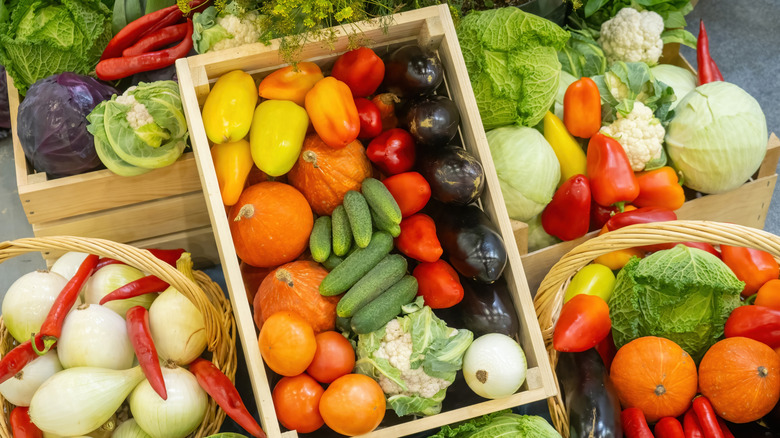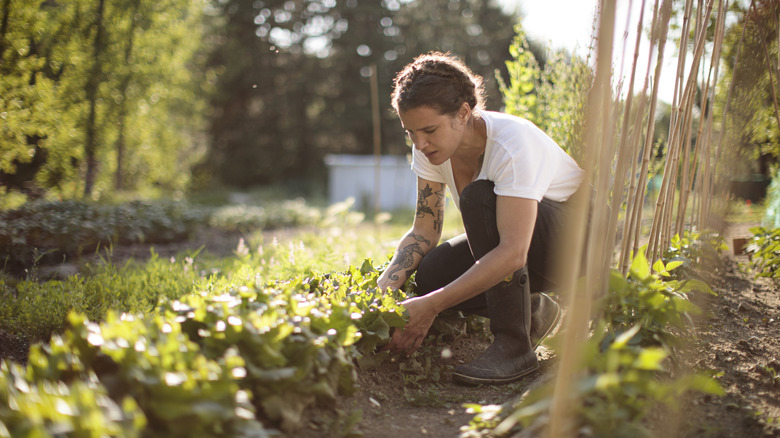Keep Your Vegetables Fresh For Longer This Summer With One Simple Gardening Tip
When they're basking in your garden, your homegrown veggies are bright, juicy, and colorful, so nothing is more disappointing than pulling them from your fridge after a few days to find them wilting and spoiling already. However, did you know that the time you're harvesting could actually be affecting how long your produce stays fresh? Most amateur gardeners don't realize that picking your fruit in the middle of the day is the worst time to do it.
Here's how this happens: Vegetables contain a lot of moisture, and this moisture will gradually evaporate throughout the day as it gets hotter, even more so in the summer. On a hot day by the middle of the afternoon, your garden veggies will have lost quite a bit of their moisture and they'll be wilting slightly, so pulling them off the plant then means they're only going to deteriorate faster. Obviously, this does not apply to vegetables that are grown underground, only veggies that get touched by the sun during the day.
All you need to do to fix this is adjust your harvest schedule to early mornings: the earlier the better to make sure you find your vegetables in their water-content prime. Morning-harvested veggies can have up to 30% more moisture than ones picked later — and that's a big difference. If you aren't a morning person, luckily, evenings will have a similar (if not quite as effective) outcome. Just try your best to avoid that really hot window between 10 a.m. and 4 p.m.
Smart storage techniques that complement proper harvest timing
No perfect harvest time will be foolproof unless you've got your storage technique down, and different vegetables need different things to maximize their shelf-life. For example, leafy greens such as spinach or lettuce should be washed, thoroughly dried, and kept in containers lined with paper towels that will absorb any excess moisture to stop them from going soggy. Root vegetables like carrots grown in containers actually stay crisp for longer when their greens are removed immediately, because their tops pull moisture from the roots.
Watch out for ethylene! Some fruits and vegetables, like apples and pears, release ethylene as they ripen, which will speed up the decay of nearby produce. To prevent your produce from yellowing and softening too early, keep the ethylene-producing produce separated from ethylene-sensitive ones like broccoli, cucumbers, and eggplant.
Finally, your refrigerator needs proper storage zones, too. The crisper drawers typically offer higher humidity, perfect for most vegetables, while the middle shelves maintain the most consistent temperature. If it starts getting a bit unruly in there, check out some unique organization products to keep your refrigerator under control. With proper storage, and early harvest times, you'll be enjoying your home-grown produce longer.

